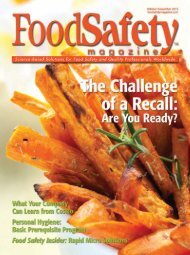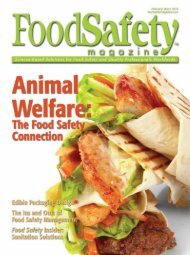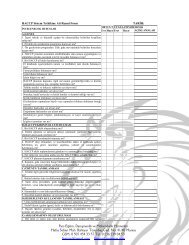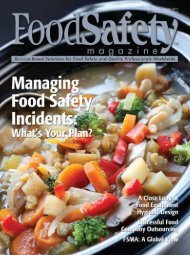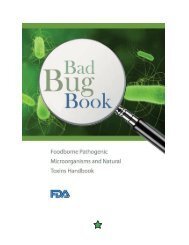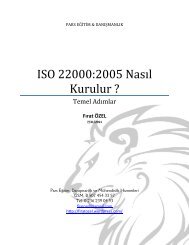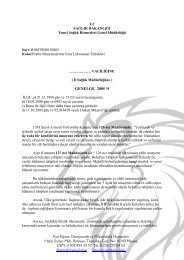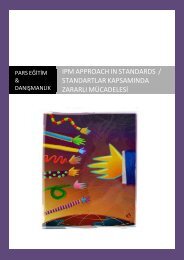Food Safety Magazine, February/March 2012
Food Safety Magazine, February/March 2012
Food Safety Magazine, February/March 2012
You also want an ePaper? Increase the reach of your titles
YUMPU automatically turns print PDFs into web optimized ePapers that Google loves.
SPOTLIGHT: MEAT AND POULTRYdividuals in charge of food safety. Managing risk is part of managingthe business. 1 These individuals are therefore responsiblefor seeing that best practices are both successfully implementedand achieved.CertificationAll Fieldale Farms’ processing facilities are USDA-inspectedfacilities. In addition to meeting the USDA performance standardsto ensure safe and wholesome products, the company iscommitted to continuous improvement to meet their customers’specifications and exceed their expectations. To do this,the company has all its processing plants Safe Quality <strong>Food</strong>(SQF) certified. More retailers and foodservice operators are requiringtheir suppliers and distributors to have certifications todemonstrate their compliance with food safety regulations at allstages of the supply chain in both domestic and global markets.SQF, British Retail Consortium (BRC) or <strong>Food</strong> <strong>Safety</strong> SystemCertification (FSSC) 22000 are all recognized by the Global<strong>Food</strong> <strong>Safety</strong> Initiative. 2SQF is a comprehensive quality management and foodsafety certification system for food processors, wholesalers anddistributors. The BRC Global Standard for <strong>Food</strong> <strong>Safety</strong> is designedfor companies supplying retailer-branded food products.BRC is a Hazard Anaylsis and Critical Control Points(HACCP)-based system and requires senior management commitmentand continual improvement. FSSC 22000 is a completefood safety certification system for the foodmanufacturing industry that is based on ISO 22000, PAS 220and ISO 22003. 3Cold-chain ManagementAdditionally, the company works continuously with its customersto execute an effective cold-chain management program.An effective partnership between supplier and customeris vital for program success. Regardless of the level of integrityof finished products leaving a manufacturing facility, failure tostore at the warehouse or transport on trucks within the correctFigure 1: Fieldale Farms’ Program/Processtemperature range will compromise both safety and quality especiallyif the product is refrigerated or frozen. 4 Investment intemperature recorders that monitor the shipping condition ofproducts in transit is becoming a common partnership practicefor customers. Currently, Fieldale Farms randomly monitorsthe shipping temperatures of products in transit to our customers.Our cold-chain management program promotes customersatisfaction by ensuring that products are shipped at theproper temperature; ensuring that monitors are retrieved so thatrecorded data are reviewed in a timely manner to facilitateprompt action and corrective measures; ensuring effective temperaturerecord keeping and documentation; and mitigatingfood safety risks. By integrating monitoring and tracking withan emphasis on driving meaningful and measurable process improvements,the right product can be in the right place at theright time under the right conditions. An example of FieldaleFarms’ program/process flow chart can be seen in Figure 1.Product EvaluationAnother practice implemented for best practices is the evaluationof customer products. Every Friday, Fieldale personnelfrom upper management, the quality and food safety team,production from all processing plants, sales and marketing andR&D gather and evaluate products produced during the weekprior to shipping to customers. This is in addition to the onlineevaluation performed during the actual processing of theproduct. Products are randomly selected and evaluated forphysical and sensory attributes. Proper packaging and labelingare also verified. Product evaluation session schedules are rotatedweekly to allow night shift quality control and productionpersonnel to participate in the evaluation sessions. The qualityand food safety team believes that when both day and nightshift personnel are involved in the evaluation process, opportunitiesfor improvement can be better identified and addressed.Such an evaluation allows the company to be familiar withcustomer product specifications and expectations, identify opportunitiesfor improvement anddemonstrate team efforts to consistentlyuphold quality and deliversafe products to customers.Label AuditingIn the first 6 months of 2011,there were 27 recalls nationwidefor undeclared ingredients; 20were the results of undeclared allergens.In the preceding 2 yearscombined, FSIS issued recalls for32 undeclared allergens. Mislabelingfor one of the eight main allergens(i.e., wheat, Crustaceanshellfish, eggs, fish, peanuts, milk,tree nuts and soybeans) typicallyresults in a Class 1 recall becauseof the associated public healthrisk. 548 F O O D S A F E T Y M A G A Z I N E



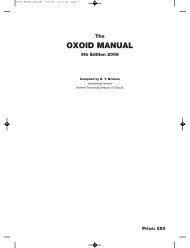
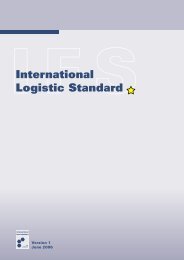
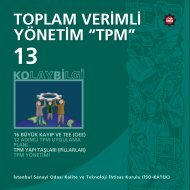
![Otomatik indirilmez ise tıklayınız [Download]](https://img.yumpu.com/44170525/1/190x190/otomatik-indirilmez-ise-taklayanaz-download.jpg?quality=85)
